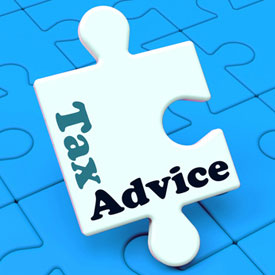Email Scam Warning in run-up to HMRC Tax Credits Deadline
 HMRC have sent out warnings over a significant threat from new ‘phishing’ emails purporting to be from them. They are, in fact, scam emails which include links to replicas of the HMRC site and are designed to trick people into disclosing security-sensitive financial and personal information such as bank details, National Insurance numbers, credit card details, passwords, mother’s maiden names and so on. In the wrong hands these details could mean theft of your money or even your identity. Many people do not realise they have been scammed until it’s too late so taxpayers need to stay alert when checking emails and browsing online.
HMRC have sent out warnings over a significant threat from new ‘phishing’ emails purporting to be from them. They are, in fact, scam emails which include links to replicas of the HMRC site and are designed to trick people into disclosing security-sensitive financial and personal information such as bank details, National Insurance numbers, credit card details, passwords, mother’s maiden names and so on. In the wrong hands these details could mean theft of your money or even your identity. Many people do not realise they have been scammed until it’s too late so taxpayers need to stay alert when checking emails and browsing online.
HMRC state that they never ask for payment and personal information by email and also warned people to be very wary of opening email attachments as many contain malicious code of one form or another. This is especially difficult because some of the fraudulent emails look very genuine, even appearing on casual inspection to come from an email address like taxreturns@hmrc.gov.uk and containing promises of tax refunds or Read more


 Her Majesty’s Revenue & Customs (‘HMRC’) have now completed a 7 month pilot scheme, held across the North East of England, whereby they closed existing HMRC Enquiry Centres and instead offered those requiring extra help with tax-related issues assistance in a different, more tailored way. With the pilot scheme now complete and deemed a success, all Enquiry Centres across the UK will be closed by 30 June 2014 (just a few days away at time of writing) in favour of the new, more tailored system.
Her Majesty’s Revenue & Customs (‘HMRC’) have now completed a 7 month pilot scheme, held across the North East of England, whereby they closed existing HMRC Enquiry Centres and instead offered those requiring extra help with tax-related issues assistance in a different, more tailored way. With the pilot scheme now complete and deemed a success, all Enquiry Centres across the UK will be closed by 30 June 2014 (just a few days away at time of writing) in favour of the new, more tailored system. Have you ever wondered how much of one’s total income is taken up in tax? And I don’t mean just Income Tax. I mean in ALL taxes paid by ordinary taxpayers throughout the course of a year. Such a figure would need to take into account National Insurance (income tax in all but name, some might say), the insidious Value Added Tax or ‘VAT’ – which on its own is a hefty 20% tax on what is often already taxed money for most ordinary taxpayers, and don’t forget to include Council Tax and finally, of course, Income Tax itself.
Have you ever wondered how much of one’s total income is taken up in tax? And I don’t mean just Income Tax. I mean in ALL taxes paid by ordinary taxpayers throughout the course of a year. Such a figure would need to take into account National Insurance (income tax in all but name, some might say), the insidious Value Added Tax or ‘VAT’ – which on its own is a hefty 20% tax on what is often already taxed money for most ordinary taxpayers, and don’t forget to include Council Tax and finally, of course, Income Tax itself. On 5 December 2013 George Osborne, Chancellor of the Exchequer, gave his Autumn Statement in Parliament. Key announcements included:
On 5 December 2013 George Osborne, Chancellor of the Exchequer, gave his Autumn Statement in Parliament. Key announcements included: HMRC (Her Majesty’s Revenue & Customs) has announced some new initiatives over the course of the last month and one of these is The Let Property campaign which is a campaign designed to recover undeclared tax from those receiving income from residential property lets. The idea is to encourage those landlords with under-declared income or gains (potentially including income tax, Capital Gains Tax and VAT) to contact them in order to make a full disclosure. By doing so they may well avoid the higher penalties which may be applied to them should HMRC discover the undeclared income/gains via other means. Don’t forget that they now have access to information shared across systems, including in relation to properties both at home and abroad, as well as being gained through their digital intelligence system ‘Connect’ which identifies links between individuals, entities and properties. So the message to landlords is loud and clear!
HMRC (Her Majesty’s Revenue & Customs) has announced some new initiatives over the course of the last month and one of these is The Let Property campaign which is a campaign designed to recover undeclared tax from those receiving income from residential property lets. The idea is to encourage those landlords with under-declared income or gains (potentially including income tax, Capital Gains Tax and VAT) to contact them in order to make a full disclosure. By doing so they may well avoid the higher penalties which may be applied to them should HMRC discover the undeclared income/gains via other means. Don’t forget that they now have access to information shared across systems, including in relation to properties both at home and abroad, as well as being gained through their digital intelligence system ‘Connect’ which identifies links between individuals, entities and properties. So the message to landlords is loud and clear!